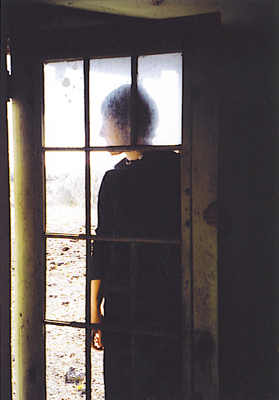All Nonfiction
- Bullying
- Books
- Academic
- Author Interviews
- Celebrity interviews
- College Articles
- College Essays
- Educator of the Year
- Heroes
- Interviews
- Memoir
- Personal Experience
- Sports
- Travel & Culture
All Opinions
- Bullying
- Current Events / Politics
- Discrimination
- Drugs / Alcohol / Smoking
- Entertainment / Celebrities
- Environment
- Love / Relationships
- Movies / Music / TV
- Pop Culture / Trends
- School / College
- Social Issues / Civics
- Spirituality / Religion
- Sports / Hobbies
All Hot Topics
- Bullying
- Community Service
- Environment
- Health
- Letters to the Editor
- Pride & Prejudice
- What Matters
- Back
Summer Guide
- Program Links
- Program Reviews
- Back
College Guide
- College Links
- College Reviews
- College Essays
- College Articles
- Back
A LIttle Girl in Russia
A variation on The Little Match Girl (1846), by Hans Christian Andersen.
The girl was cold.
It was –5ºC, on December 24th, 1942. In the distance, the girl could hear gunshots and artillery fire. The girl ignored them. If the Germans came, so be it. At this point, it would be a mercy.
The girl was wearing a little, patched up dress and a tattered cloak. She had no shoes, and she couldn’t feel her feet, which were quickly turning white and blue. One she had lost under an automobile, which had rendered it useless. The other a soldier took, saying he would use it to burn for fuel. In exchange, he gave her a box of matches. She had sold her hat for a piece of warm bread. She regretted that decision, for she was freezing.
She came to an alleyway, and she entered. It was empty, and she slid down the far end of the alley. This way, she would be protected from the wind.
Somewhere, she smelled smoke and bread. It was suicide to light a fire bigger than a match right now, especially with the trigger-happy artillery gunners on the outside of the city, but it had been so long since she had seen bread or fire. She hadn’t seen any since the NKVD had gone to her grandmother’s house, taken her grandmother away, and burned the house down.
Her longing for any kind of warmth was so great she finally brought out the matches. They were beautiful, with vibrant red tips, and long shafts. She took one out of the box and struck it against the striker.
The flame! The warmth! It warmed her just a tiny bit. And within the fire, she saw the stove that had been prominent in her grandmother’s home. It contained a fire which roared hotly, and it warmed her. Then the flame of the match burned her fingers, and her vision vanished as it fell to the ground.
She pulled out another one, struck it, and looked into the flame. There she saw a feast. Turkey. Loaves of bread. Khrenovina sauce. Foods upon foods upon foods. She reached out for one. The flame of the match burnt her again, and she dropped it.
She started striking match after match after match. She saw visions of Christmas trees. Sleigh rides. Present shopping. And every time she tried to reach for it, she was always burnt by the ever-present flame of the match.
And then there was one match remaining in the box.
The girl stared at it. Her face was blue, and one of her eyes was bloodshot, entirely red. But she ignored that. She lifted it up, and tried to strike it against the striker. It didn’t take. Again and again, she struck it against the striker, but it didn’t take. She tried one last time, with the last of her strength. It lit, a tiny white flame. She looked into the flame, and saw her grandmother, at the door of their house before the NKVD came. The girl could smell the feast behind her grandmother and she could feel the soothing warmth of the house. She reached out for her grandmother, and to her surprise, touched her. She looked around her. The alleyway was gone! She started crying and embraced her grandmother, who, smiling, led the girl inside and closed the door.
Then it faded to black.
)(
The two soldiers had been assigned to clean-up duty as a result of drawing the short straws. Now they strolled along the streets of the city, heaving any dead bodies they found into the cart behind them. While the first soldier was picking up the body of an unfortunate comrade who had been riddled with bullets, he noticed his partner was missing. He found him standing in front of the crumpled form of a frostbitten girl, holding an unused match in her hand, with a match box full of unused matches beside her.
“Do you know her?”
“Yes. I’m the one who gave her the matches. I thought they would be more useful than the remaining shoe she had, so I traded with her, but…”
The first soldier sighed, patted his comrade’s shoulder, and left him standing there. He would catch up later. He would have to. After all, it was only another day in Stalingrad, and they still had a lot of work to do.

Similar Articles
JOIN THE DISCUSSION
This article has 0 comments.
